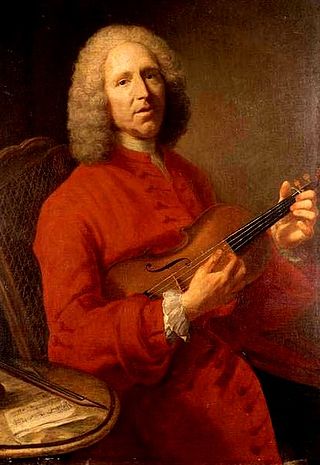Top Qs
Timeline
Chat
Perspective
Zaïs
1748 opera by Jean-Philippe Rameau From Wikipedia, the free encyclopedia
Remove ads
Zaïs is an opera by Jean-Philippe Rameau first performed on 29 February 1748 at the Opéra in Paris. It takes the form of a pastorale héroïque in four acts and a prologue. The librettist was Louis de Cahusac.

The score is particularly remarkable for its overture, which depicts the emergence of the four elements out of chaos. It looks back to Jean-Féry Rebel's ballet Les élemens and forward to Haydn's overture for his oratorio The Creation.
Remove ads
Roles
According to the published libretto [1]
Remove ads
Synopsis
Zaïs, a genie, disguises himself as a shepherd to win the love of a shepherdess, Zélide. After a series of ordeals in which Zaïs shows he is willing to give up his magic powers for his love, Oromases, the king of the genies, grants Zélide immortality so the couple can marry.
Recordings
- Zaïs, John Elwes (Zaïs), Marjanne Kweksilber (Zélidie), Max van Egmond (Oromazès), David Thomas (Cindor), Mieke van der Sluis (Une Sylphide/ La Grande Prêtresse de l'Amour), Jane Marsch (L'Amour), René Jacobs (Un Sylphe), La Petite Bande conducted by Gustav Leonhardt (3 CDs, Stil, 1975)
- Zaïs, Julian Prégardien (Zaïs), Sandrine Piau (Zélidie), Aimery Lefèvre (Oromazès), Benoït Arnould (Cindor), Amel Brahim-Djelloul (Une Sylphide/ La Grande Prêtresse de l'Amour), Hasnaa Bennani (L'Amour), Zachary Wilder (Un Sylphe), Chœur de Chambre de Namur and Les Talens Lyriques conducted by Christophe Rousset (3 CDs, Aparte, 2015)
References
External links
Sources
Wikiwand - on
Seamless Wikipedia browsing. On steroids.
Remove ads
